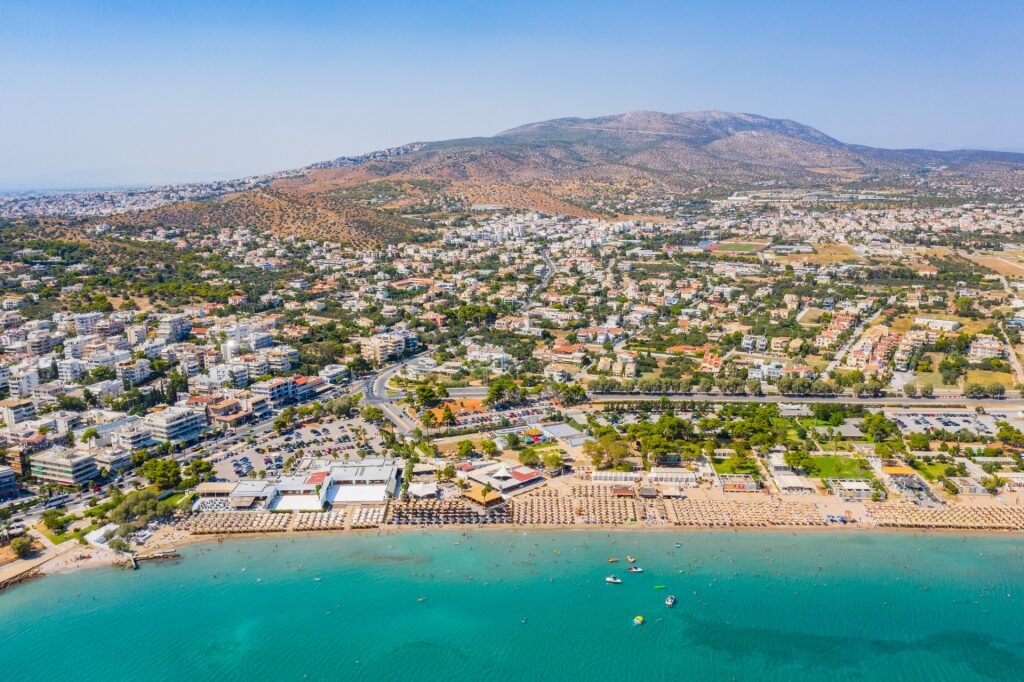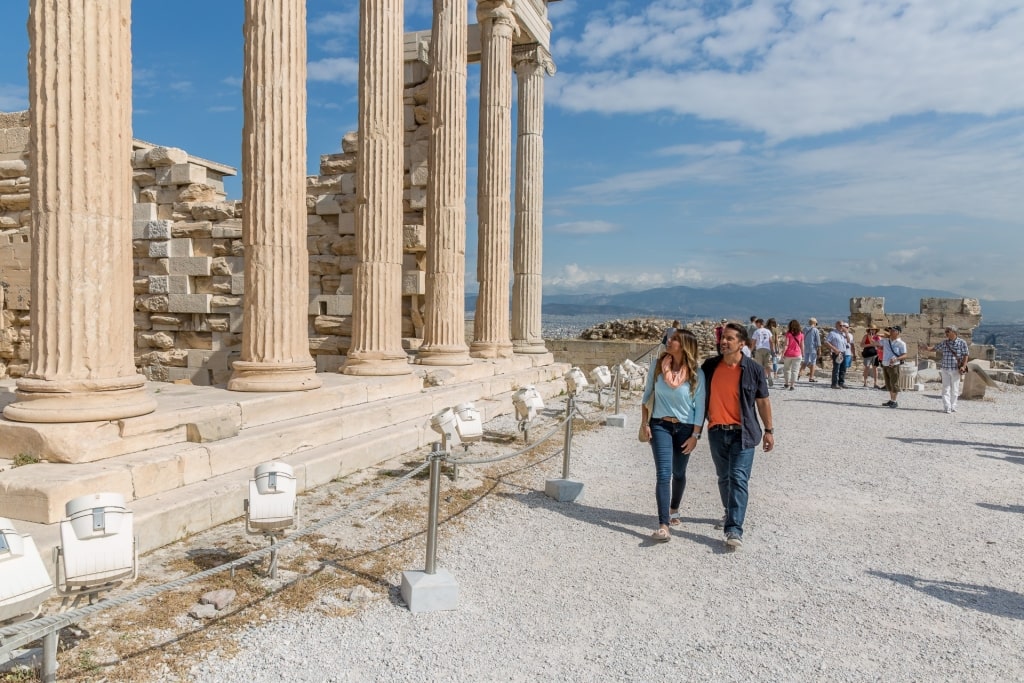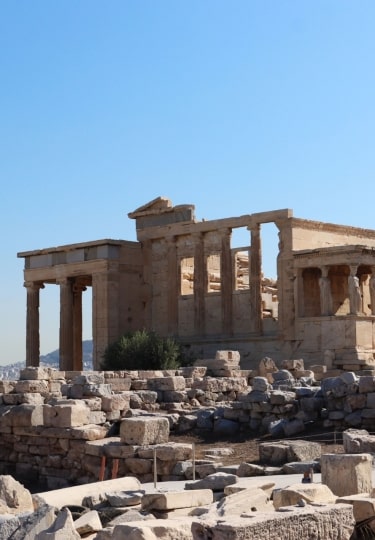The best time to visit Athens is in the shoulder season months, which are May, June, September, and October. The heat is less intense during this time and there are fewer crowds.
Having said this, the Greek capital is an enchanting city to visit at any time of year. All the magnificent antiquities are open year-round, and the lively social and cultural scene continues, whatever the weather.
Athens’ climate is Mediterranean, which means hot, dry summers and mild, occasionally wet winters. The city lies on the plain of Attica, framed by mountains, with the sea to the west and south. Technically, Athens is the hottest capital city in Europe, but in the height of summer, the beaches and islands are easily accessible.
Visiting Athens by Season
Summer

Yabanaki Beach
Summers in Athens are intensely hot. The areas nearer the coast are cooled by sea breezes, and in July and August, Athenian beach clubs are where you’ll find locals after work and on weekends. This is a time for outdoor cinema, al-fresco dining, and late night drinks in a rooftop bar looking out towards the floodlit Parthenon.
The average temperature in August is 83.3°F (28.5°C). Heatwaves can bring highs of 104°F (40°C). Rainfall is negligible, and there are 11 hours of sunshine per day. If you love the heat, this is the best time to visit Athens.
Fall
September, October, and November is a wonderful season to visit Athens, with September’s average temperatures a delightful 76°F (24.4°C). Rainfall in September and October is extremely low, although November is a wetter month, bringing 2.4 inches (60mm) of rain on average.
In September and early October, the sea is delightfully warm for swimming, with September’s average sea temperatures 75°F (24°C).
Winter
December and the pre-Lenten carnival festivities aside, winter is the low season in Athens. There are far fewer crowds, and Athenians stay in the city rather than dispersing to the islands on weekends.
Temperatures drop to an average of around 49.9°F (9.9°C) in January, the coolest month, but cold air can sweep in from the north east, bringing frost and on occasion, snow. The Parthenon covered in snow is a magnificent sight if you’re lucky enough to catch it.
Spring
Spring is arguably the best time to go to Athens, with increasingly long, sunny days, low rainfall, and by May, average temperatures of 69°F (20.5°C). The hills around the city are covered in a gentle green fuzz, and by May, there is just 0.6 inches (14mm) of rain.
The sea is beginning to warm up for swimming. Outdoor living is in full swing, with May bringing the Athens Street Food Festival, a time of feasting and celebration.
When Is Rainy Season?
The rainiest months in Athens are November, December, and January, with December receiving around 2.4 inches (60mm) of rain on average. Water is a precious commodity, and any rainfall is welcomed. It’s rare to have long, wet spells of rain, though; visit in November and only eight days out of the 30 are statistically likely to bring rain.
When Is High Season?

Acropolis
High season in Athens is the summer months, July and August. This is a time for festivals and outdoor living. City dwellers escape the heat at the upscale beach clubs that line the Athenian Riviera. On weekends, they hop on the ferries and hydrofoils that zip back and forth to the islands.
Athens will be busy with visitors in summer, if less so with locals. Pace yourself, as the heat is intense. Don’t attempt activities like hiking up Acropolis Hill at midday without copious supplies of water and proper sun protection. Do your sightseeing early in the morning and then head into the cool air conditioning of a museum or the beach for swimming and grilled seafood.
When Is Shoulder Season?

Acropolis Museum
Shoulder season in Athens is the spring and fall months, which are the best time to visit the city for sightseeing. There will still be crowds, but you will have more space at the Acropolis Museum and in the pretty streets of the Plaka neighborhood of Athens.
Note that Greeks celebrate Orthodox Easter, which falls later than Catholic or Protestant Easter. Solemn and atmospheric processions take place in the week leading up to Good Friday, which can be a wonderful, if busy time to visit the city. Some restaurants and shops in Athens will close over Easter.
When Is Low Season?
Winter is the low season in Athens, although this doesn’t mean that the city shuts down. Christmas is busy—and Greeks stay on Christmas vacation until January 6. Expect lively Carnival celebrations in the week leading up to Lent.

Yabanaki Beach
Discover the history and culture of this city aboard one of Celebrity’s cruises to Athens.



